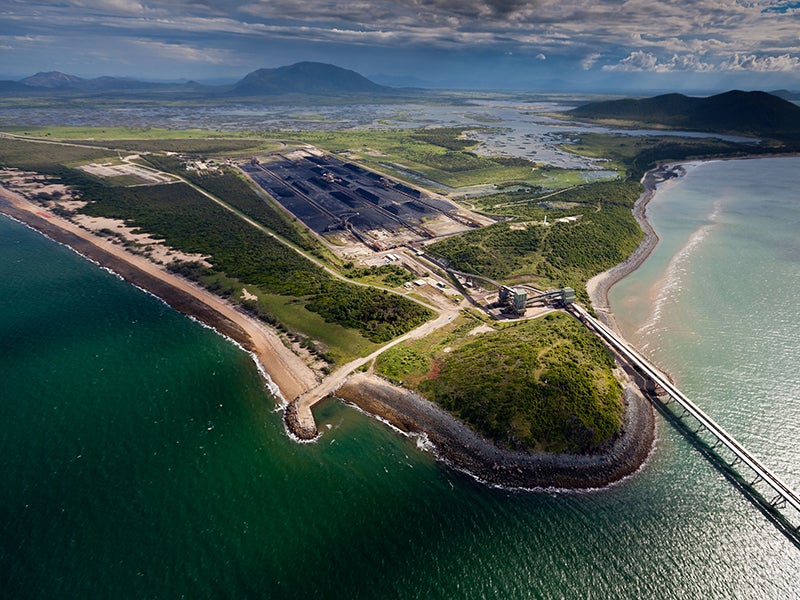Corporate Group with a Dubious Record Plans Massive Coal Projects
The corporate group that wants to build one of the biggest coal mines in the world and expand a coal port on the Great Barrier Reef has a terrible track record of harm to the environment.

This page was published 9 years ago. Find the latest on Earthjustice’s work.
In the Galilee Basin, a remote part of Queensland, Australia, the Adani Group—a corporate conglomerate headquartered in India—plans to build a coal mine that would be among the largest in the world, known as the Carmichael mine. But that’s not all. To facilitate exporting the coal from this and other proposed mines in the area, the Adani Group plans to expand a port on the edge of the Great Barrier Reef World Heritage Area. Despite the serious risk these projects pose to the global climate; the iconic Great Barrier Reefindigenous Wangan and Jagalingou people
This is particularly alarming in light of evidence of the group’s track record of breaching environmental laws and harming communities and the environment. For example, at Mundra in India, an Adani Group company operates one of the world’s largest coal-fired power plants and a massive port and special economic zone. Indian government and independent investigations have found violations of environmental law and the conditions of the company’s environmental approvals, as well as extensive harm to the surrounding environment and local communities. Investigations have found destruction of large swathes of mangrove forest in a conservation area, obstruction of creeks, failure to line water storage ponds and channels to protect groundwater and failure to comply with environmental monitoring requirements. The company was also found to have bypassed statutory procedures, such as public hearings, and to have constructed an entire township and airport without approval. As a result, the Indian Environment Ministry suspended the company’s environmental approval for its port. Now, new evidence has emerged concerning the actions of a major copper mining company in Zambia. The current CEO of the Adani Group’s Australian operations, Jeyakumar Janakaraj, was formerly Director of Operations at Konkola Copper Mines (KCM). During Janakaraj’s tenure at KCM, the company polluted the Kafue River, which local communities depend on for drinking water, fishing and irrigation, with toxic mining waste water. KCM pleaded guilty to criminal prosecution for this pollution and for willfully failing to report it. The company paid a fine. Earthjustice, in collaboration with Environmental Justice Australia, has investigated and reported on the Adani Group’s global environmental record. You can view a copy of the report here, and an exclusive television investigation into KCM’s pollution in Zambia here. Despite the Adani Group’s poor environmental track record, the Australian and Queensland governments support the group’s plans. The proposed Carmichael coal mine would produce up to 60 million tons of coal per year for up to 60 years, primarily intended for export to India where it will be burned in polluting coal-fired power plants. The emissions from this coal over the proposed lifespan of the mine are some of the highest associated with a single project anywhere in the world. The proposed expansion of the coal port at Abbot Point on the edge of the Great Barrier Reef World Heritage Area would also increase the stress on the already vulnerable Great Barrier Reef, since it requires harmful seabed dredging and would result in more industrial shipping through the reef, increasing the risk of accidents and spills. Mining companies like the Adani Group should not be allowed to operate unless they can demonstrate a record of safe operations and compliance with the law. Australia proposes to entrust the protection of communities and the environment—including the Great Barrier Reef—to a corporate group with a questionable attitude toward protecting the environment and the health and welfare of the communities where it operates. It is imperative, therefore, that the Australian and Queensland governments properly consider the environmental track record of the Adani Group when deciding whether it’s worth the risk to let the Adani Group develop the Carmichael mine and expand Abbot Point Port.
The International Program partners with organizations and communities around the world to establish, strengthen, and enforce national and international legal protections for the environment and public health.